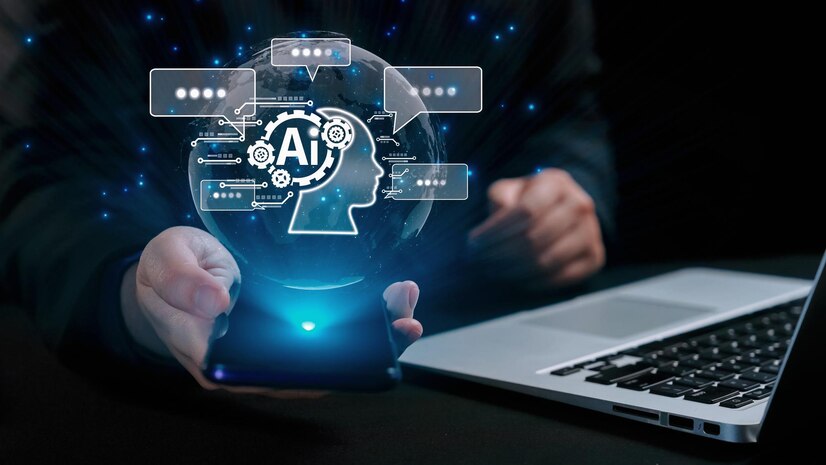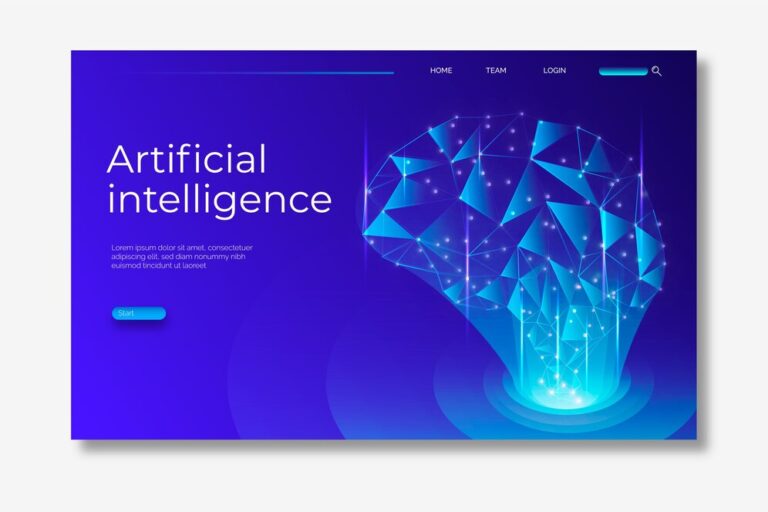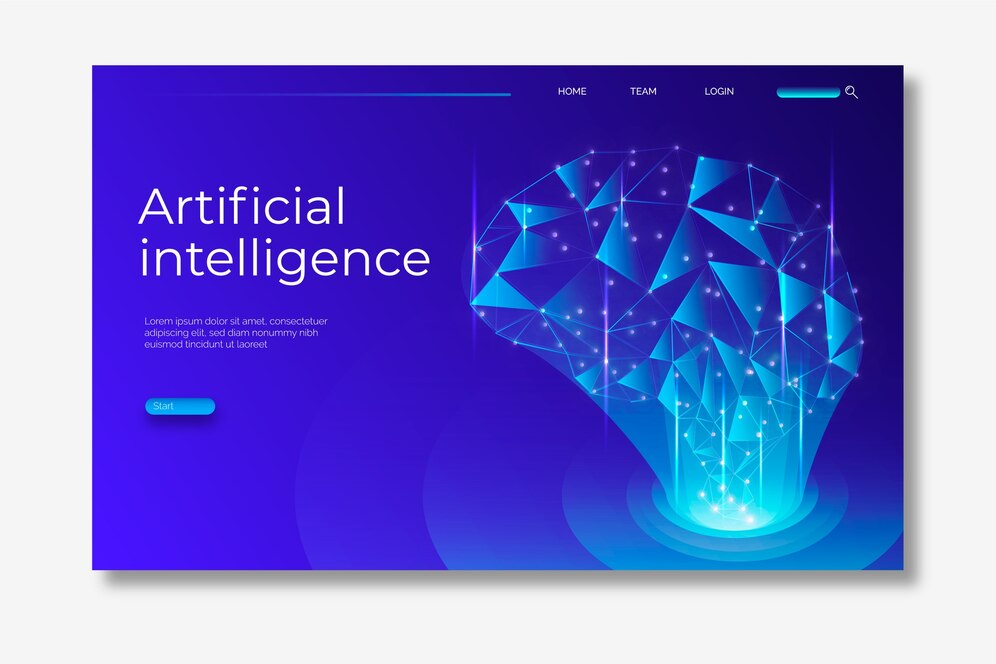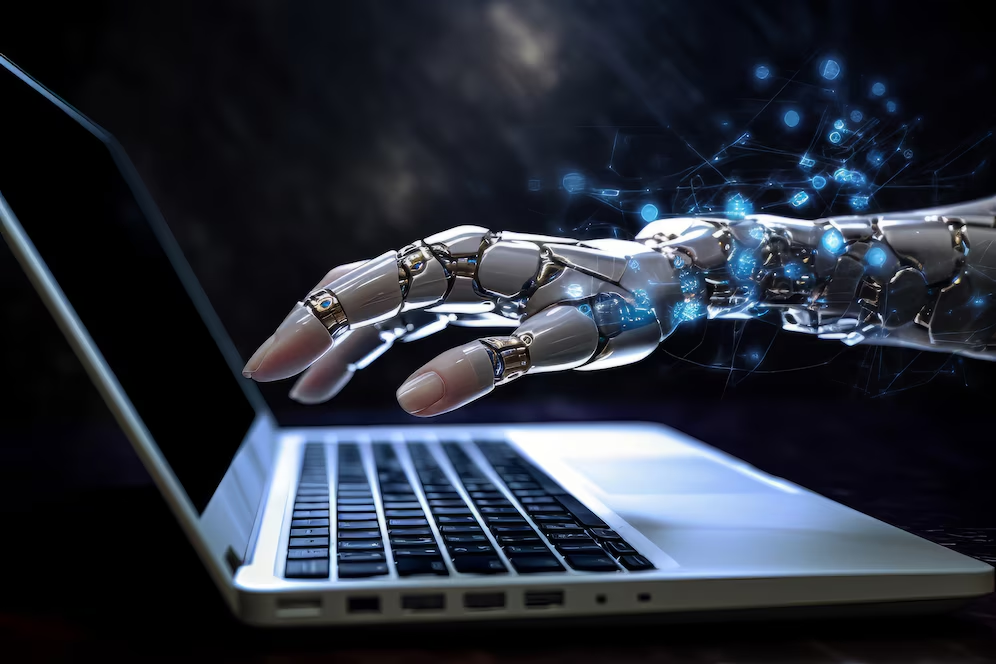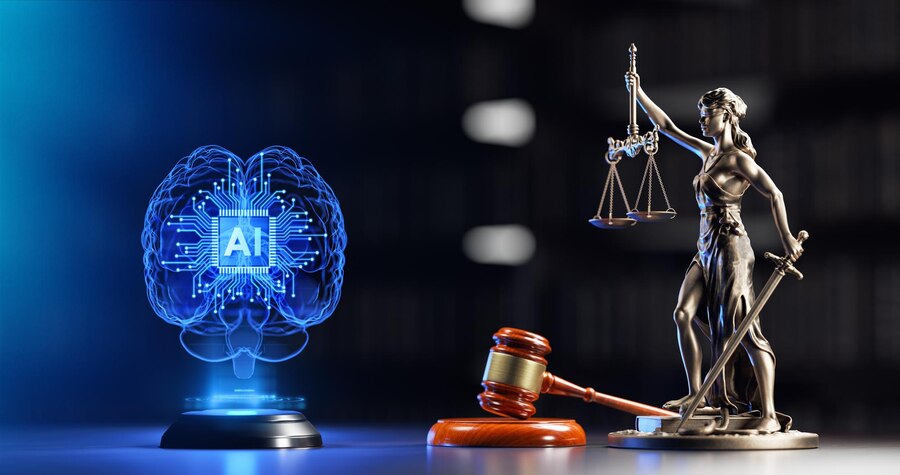Artificial Intelligence (AI) has transitioned from being a science fiction concept to a critical component in modern digital marketing. Today, AI is a powerful tool driving personalized advertising, predictive analytics, and enhanced customer experiences, among other applications. This article delves into the role of AI in digital marketing, showcasing its benefits, challenges, and essential skills needed to leverage its potential.
Understanding AI in Digital Marketing
Artificial Intelligence in digital marketing refers to the use of advanced technologies such as machine learning, natural language processing, and data analytics to gather insights and automate marketing processes. AI helps marketers understand consumer behavior by analyzing large datasets quickly, enabling them to tailor marketing strategies and customer interactions effectively.
By integrating AI, marketers can deliver personalized experiences, respond to consumer needs in real time, and improve overall marketing efficiency. AI significantly enhances marketing capabilities, but it requires human expertise to maximize its effectiveness. AI is a tool that, when used strategically, can complement human creativity and decision-making.
Essential AI Tools for Digital Marketing
While ChatGPT has garnered attention for its content generation capabilities, many other AI tools are making significant impacts across various marketing functions. These tools support everything from content creation to marketing automation and data analysis:
- Jasper: A content creation and optimization tool that aids in producing high-quality content quickly.
- Writer: An AI-powered writing assistant that helps repurpose content and generate new material.
- Midjourney: An AI that transforms textual prompts into visually appealing images, useful for creating unique visual content.
- Optimove: A customer data platform that uses AI to enhance marketing strategies through customer insights.
- Zapier: A tool that automates workflows by connecting different apps, streamlining processes for marketers.
- ManyChat: A platform using natural language processing (NLP) to provide interactive customer experiences on platforms like WhatsApp.
- Evolv.ai: This AI-driven tool uses machine learning to optimize customer experiences in real time.
- Surfer SEO: A cloud-based tool that analyzes web pages to improve search engine rankings.
- Perplexity: Similar to ChatGPT but better suited for research due to its clear use of web citations.
- Canva AI: Offers design automation, allowing marketers to create visually appealing graphics and ads efficiently.
Real-World Applications of AI in Digital Marketing
AI’s versatility allows it to be used across multiple digital channels. From automating tasks to enhancing digital advertising, AI can provide substantial benefits in various industries. Here are some notable examples:
- Personalized Recommendations: Companies like Netflix utilize AI to analyze user behavior and preferences, providing personalized content recommendations that keep users engaged. This personalization extends to product recommendations in e-commerce platforms like Amazon, which uses AI to suggest products based on browsing and purchase history.
- AI-Powered Chatbots: Brands like Sephora use AI chatbots to offer personalized shopping experiences, answering customer queries, and suggesting products based on user interactions. Chatbots are also employed by financial institutions to assist customers with account information and transactions.
- Programmatic Advertising: Publishers like The Economist use AI to deliver targeted advertisements, ensuring the right message reaches the right audience, thus increasing engagement rates. AI-driven programmatic advertising allows for real-time bidding, optimizing ad placements based on audience behavior and maximizing ROI.
Leveraging AI in Digital Marketing
As AI tools become more accessible, businesses are incorporating them into their daily marketing activities. From generating content to managing email campaigns, AI is becoming an integral part of marketing operations.
A survey by the Digital Marketing Institute found that over half of marketers believe AI is changing their roles, with 44% actively using AI to enhance productivity. Here’s how AI is being used in digital marketing:
- Content Creation and Optimization: AI tools like Jasper and ChatGPT assist in creating various content types, such as blogs, emails, and social media posts. They help generate ideas, draft content, and optimize it for search engines, saving time and resources. AI can also analyze competitor content, suggesting improvements to boost SEO and engagement.
- Customer Support: AI chatbots provide instant responses to customer queries, improving customer service and experience. They can handle multiple interactions simultaneously, ensuring that customers receive timely and accurate information. Advanced chatbots use machine learning to adapt to new questions, continually improving their responses.
- Customer Segmentation: AI analyzes customer data to segment audiences based on behavior, preferences, and demographics. This enables marketers to tailor messages and offers to specific customer groups, enhancing engagement and conversion rates. AI can predict customer lifetime value, helping marketers focus their efforts on high-value segments.
- SEO Optimization: AI improves search engine optimization by analyzing search patterns, optimizing content for relevant keywords, and predicting SEO trends. It can also enhance voice and visual search capabilities, catering to evolving user preferences. Tools like Surfer SEO and Clearscope provide data-driven insights that help marketers optimize on-page elements and content structure.
- PPC Advertising: AI optimizes pay-per-click campaigns by selecting the best keywords, managing bids, and targeting the right audience segments. It uses predictive analytics to forecast campaign performance, enabling marketers to make data-driven decisions. AI can identify underperforming ads and suggest adjustments to improve click-through rates and conversions.
- Data Analytics: AI processes large datasets to uncover insights, detect anomalies, and predict trends. Marketers can use these insights to refine their strategies, improve customer targeting, and enhance overall marketing effectiveness. Advanced analytics platforms use AI to perform predictive modeling, scenario analysis, and real-time data visualization.
- Email Marketing: AI enhances email marketing by optimizing send times, segmenting audiences, and personalizing content. It can analyze email performance, conduct A/B testing, and automate workflows, making email campaigns more efficient and impactful. AI can also predict customer behavior, triggering automated email sequences based on specific actions or events.
Case Studies: AI in Action
To understand the impact of AI in digital marketing, let’s explore some real-world case studies:
- Spotify’s Personalized Playlists: Spotify uses AI algorithms to analyze listening habits and create personalized playlists like Discover Weekly. This use of AI has increased user engagement, with listeners spending more time on the platform and discovering new music tailored to their tastes.
- Coca-Cola’s Image Recognition: Coca-Cola employs AI-powered image recognition technology to analyze social media posts. This allows the company to track brand mentions, monitor consumer sentiment, and gain insights into how customers interact with its products. AI helps Coca-Cola optimize its social media strategies and engage with customers more effectively.
- L’Oreal’s Virtual Try-On: L’Oreal uses AI technology to offer a virtual try-on experience for its makeup products. Customers can use their smartphones to see how different products look on their faces, enhancing the online shopping experience. This innovative use of AI has increased customer satisfaction and boosted online sales.
Pros and Cons of AI in Digital Marketing
Like any technology, AI has its advantages and disadvantages. Understanding these can help marketers make informed decisions about incorporating AI into their strategies.

Pros of AI in Digital Marketing
- Increased Efficiency: AI automates repetitive tasks, allowing marketers to focus on strategic initiatives.
- Enhanced Personalization: AI analyzes customer data to deliver personalized content and experiences, increasing engagement and satisfaction.
- Better Decision-Making: AI provides data-driven insights that help marketers make informed decisions, optimizing campaigns and improving ROI.
- Scalability: AI enables marketers to scale their efforts, reaching larger audiences with personalized messages without increasing workload.
- Predictive Analytics: AI can forecast consumer behavior and market trends, helping marketers stay ahead of the competition.
- Cost Savings: By automating tasks and optimizing processes, AI can reduce marketing costs and improve resource allocation.
- 24/7 Customer Support: AI-powered chatbots provide round-the-clock support, ensuring customers receive assistance whenever needed.
Cons of AI in Digital Marketing
- Data Privacy Concerns: AI relies on large datasets, raising concerns about data privacy and security. Marketers must ensure they handle data responsibly and comply with regulations.
- Bias: AI algorithms can be biased if trained on unrepresentative data, leading to unfair outcomes and impacting brand reputation.
- Cost: Implementing AI technologies can be expensive, especially for small businesses. The initial investment and ongoing maintenance costs need to be considered.
- Dependence on Data Quality: AI’s effectiveness depends on the quality of data it uses. Poor data can lead to inaccurate insights and suboptimal decisions.
- Ethical Considerations: AI can raise ethical issues related to transparency, consent, and manipulation. Marketers must consider the ethical implications of using AI.
- Job Displacement: As AI automates more tasks, there is a risk of job displacement for roles that involve routine or repetitive tasks.
Future Trends in AI-Driven Digital Marketing
The landscape of digital marketing is constantly evolving, and AI is at the forefront of this change. Here are some future trends to watch:
- Voice Search Optimization: With the rise of voice-activated devices like Amazon Echo and Google Home, optimizing content for voice search is becoming increasingly important. AI can help marketers understand how people use voice search and create content that aligns with spoken language queries.
- Visual Search: Visual search allows users to search for products using images rather than text. AI-powered visual search tools can recognize objects in images and provide relevant search results. Brands can use visual search to improve product discovery and drive e-commerce sales.
- Augmented Reality (AR): AI and AR are being used together to create immersive shopping experiences. For example, furniture retailers use AR to allow customers to visualize how products will look in their homes. AI enhances AR experiences by providing personalized recommendations based on user preferences.
- Predictive Content Creation: AI will increasingly be used to predict what type of content will resonate with specific audiences. By analyzing past performance and user behavior, AI can suggest content topics, formats, and distribution channels that are likely to generate high engagement.
- AI-Driven Influencer Marketing: AI can help brands identify the most effective influencers for their campaigns by analyzing social media data and audience demographics. AI can also track influencer performance and ROI, ensuring brands get the most value from their partnerships.
Skills Needed for the AI-Driven Marketing Future
To harness the power of AI effectively, marketers need to develop both technical and strategic skills. Here are some key skills required for AI-driven digital marketing:
- Data Analysis: Understanding how to interpret and analyze data is crucial for making data-driven decisions and optimizing marketing strategies.
- AI Tool Proficiency: Familiarity with AI tools and platforms is essential for implementing and managing AI-driven marketing campaigns.
- Content Personalization: Marketers need to know how to use AI to personalize content and create tailored experiences for different customer segments.
- Marketing Automation: Skills in automating marketing tasks, such as email campaigns and social media posts, are valuable for improving efficiency and consistency.
- Process Improvement: Marketers should be able to identify areas where AI can streamline processes and enhance marketing performance.
In addition to technical skills, marketers should cultivate broader competencies such as strategic thinking, creativity, and innovation. These skills will enable them to integrate AI effectively into their marketing strategies and drive business success.
Ethical Considerations and Best Practices

As AI continues to shape digital marketing, ethical considerations become increasingly important. Marketers must ensure that their use of AI respects customer privacy, avoids bias, and maintains transparency. Here are some best practices for ethical AI use:
- Data Privacy: Obtain explicit consent from customers before collecting and using their data. Implement robust data security measures to protect customer information.
- Transparency: Be transparent about how AI is used in marketing. Clearly communicate how customer data is collected, stored, and used.
- Avoiding Bias: Ensure AI algorithms are trained on diverse datasets to avoid biases. Regularly audit AI systems to identify and address any biases.
- Ethical Advertising: Avoid using AI to manipulate or deceive customers. Focus on delivering value and building trust through ethical advertising practices.
Conclusion: Embracing AI in Digital Marketing
Artificial Intelligence is transforming the digital marketing landscape, offering new opportunities for personalization, efficiency, and data-driven decision-making. While AI can automate routine tasks, it does not replace the need for human creativity and strategic thinking. By developing the right skills and adopting a thoughtful approach to AI, marketers can leverage this powerful technology to achieve their goals and stay ahead in the competitive digital landscape.
As AI continues to evolve, marketers must stay informed about the latest developments and be proactive in integrating AI into their strategies. By doing so, they can harness the full potential of AI, delivering exceptional customer experiences and driving business growth. AI is not just a tool; it’s a game-changer that can elevate digital marketing to new heights.
“Awareness is the first step to change. The question is, are you going to sit on the sidelines and let this evolve or are you going to dive in with two feet and try to understand it, learn it, try it and apply it?” concludes Lecinski on the DMI podcast on getting started in AI.
With the right approach, AI can become an invaluable ally for marketers, helping them achieve their objectives and unlock new levels of success in the digital age. Embrace AI, and let it drive your marketing strategy forward.

